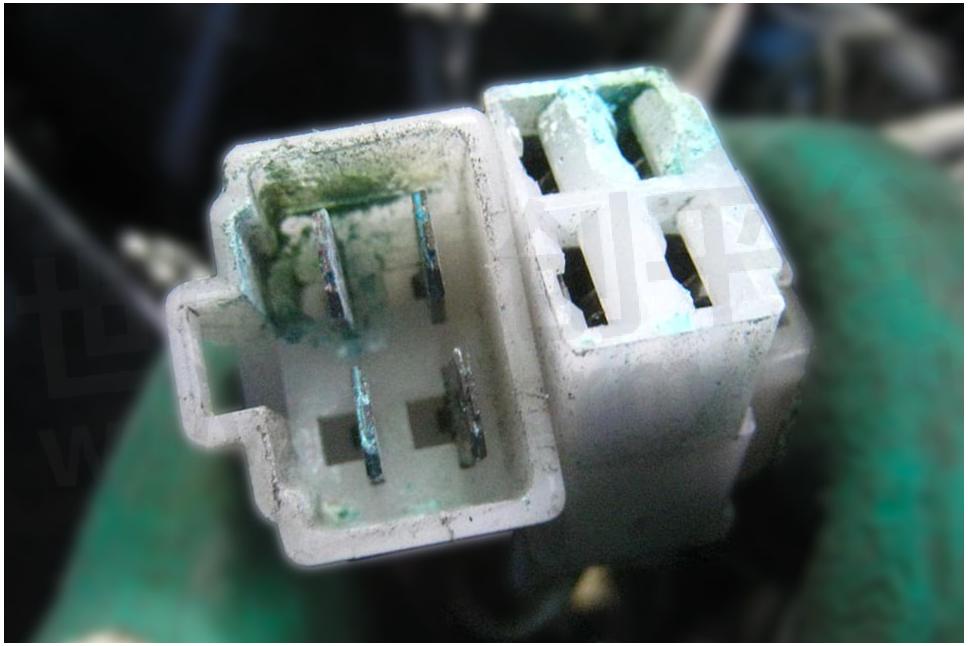Analysis of Reasons for Electrical Contact Failure in Automotive Connectors

According to research, electrical contact failure is the main mode of failure in Automotive Connectors, and the main causes of electrical contact failure are insufficient electrical contact pressure and contact wear.
Insufficient Electrical Contact Pressure in Automotive Connectors
Connectors conduct electricity through pin and socket contacts. The socket is an elastic element, and its quality is crucial to the reliability of the electrical connection. When the pin is inserted into the socket, it produces elastic deformation, which in turn generates contact pressure on the pin. Unstable or reduced contact pressure can affect the stability of contact resistance. Under certain vibration and impact stresses, the elastic component undergoes recoverable elastic deformation. If the vibration and impact stresses are large enough and last long enough, instantaneous failure may occur.
As the pin and socket are subject to tension and compression forces over the long term, the socket's elastic element gradually undergoes permanent deformation and shows stress relaxation fatigue. Under the combined effects of contact points and ambient temperature, the socket may exhibit creep, resulting in reduced contact pressure and increased contact resistance.
Contact Wear in Automotive Connectors
Insertion and Withdrawal Wear
When an automotive connector is mated and unmated, friction occurs due to relative movement of the pin and socket under a certain contact pressure, damaging the contact surfaces, changing geometric shapes, causing abrasion, adhesion, producing debris, and resulting in material transfer, along with the generation of heat.
With the increase of plugging and unplugging cycles, the metal coating on the surface of the pin and socket contacts is worn away, revealing the base metal, which corrodes under the action of the surrounding environment and results in poor contact. The degree of contact surface wear is related to the contact pressure, the surface roughness of contact friction parts, the type, hardness, and quality of the coating material, the smoothness of the rounded corners of the guiding positions, and the geometry of socket contacts.
When the contact pressure is high, the connection between the rounded corners of the pin head and the socket's inner hole is poor. When the surface roughness at the contact position is high, the lower the coating material's hardness is low, and the coating quality is poor, the contact wear becomes more severe, resulting in the short mating and unmating life and poor contact stability of automotive connectors.
Fretting Wear
Fretting wear is a wear phenomenon that occurs between two surfaces with small amplitude (1~100μm) vibrations and relative motion. It is primarily caused by thermal expansion and contraction due to temperature cycling and background vibrations. Due to the simultaneous presence of vibration and thermal shock in automotive connectors' operating conditions, fretting wear frequently occurs.
For example, if an electrical connector fluctuates at 5℃/h and cycles 20 times, and the pin (made of brass) has a thermal expansion coefficient of 2x10-5/℃ and a length of 5mm, the amplitude of its fretting vibration can reach 5μm. Experiments have shown that after several million cycles of such fretting, the electrical contact's reliability may be seriously affected. For example, if a car runs for 5 hours at a vibration frequency of 1000Hz, it will produce 18 million fretting cycles.
Based on the high requirements of automotive applications for connector performance and quality, GREENCONN attaches great importance to the design of the electrical contact reliability of automotive connectors when delivering automotive connector solutions, ensuring that their contact resistance, insertion and withdrawal forces, and positive contact pressure are all above the high specifications.

- +1 Like
- Add to Favorites
Recommend
This document is provided by Sekorm Platform for VIP exclusive service. The copyright is owned by Sekorm. Without authorization, any medias, websites or individual are not allowed to reprint. When authorizing the reprint, the link of www.sekorm.com must be indicated.


























































































































































































































































































































































































































































































































































































































































































































































































































































































































